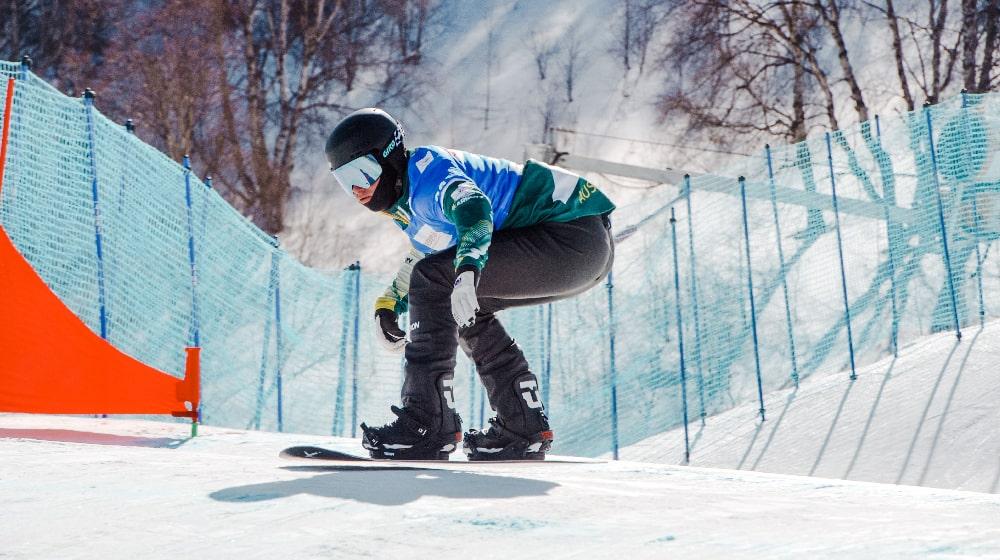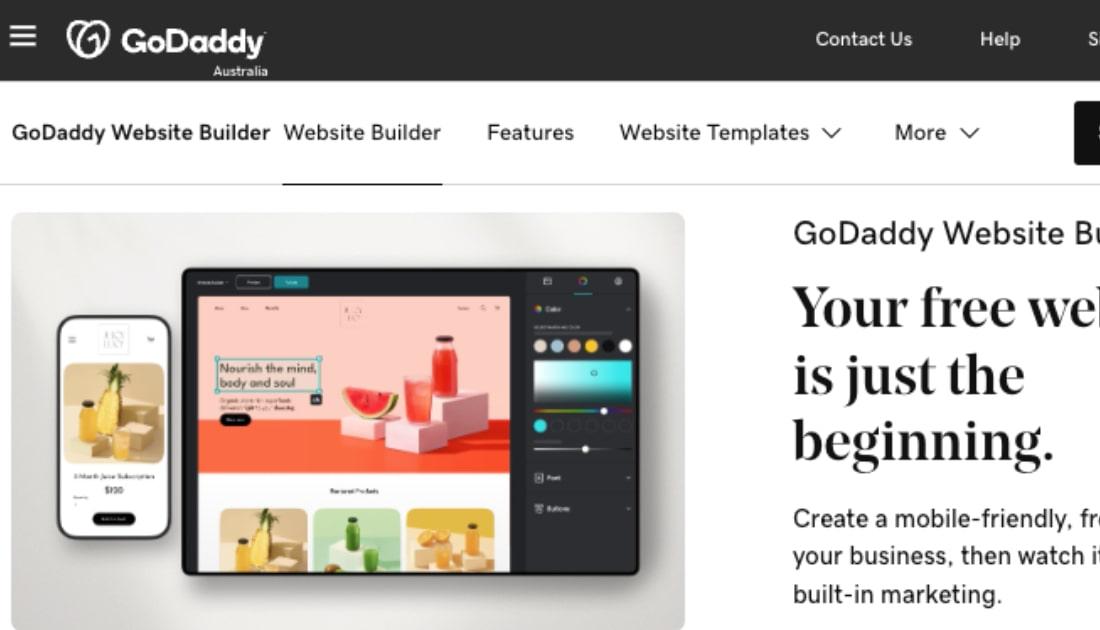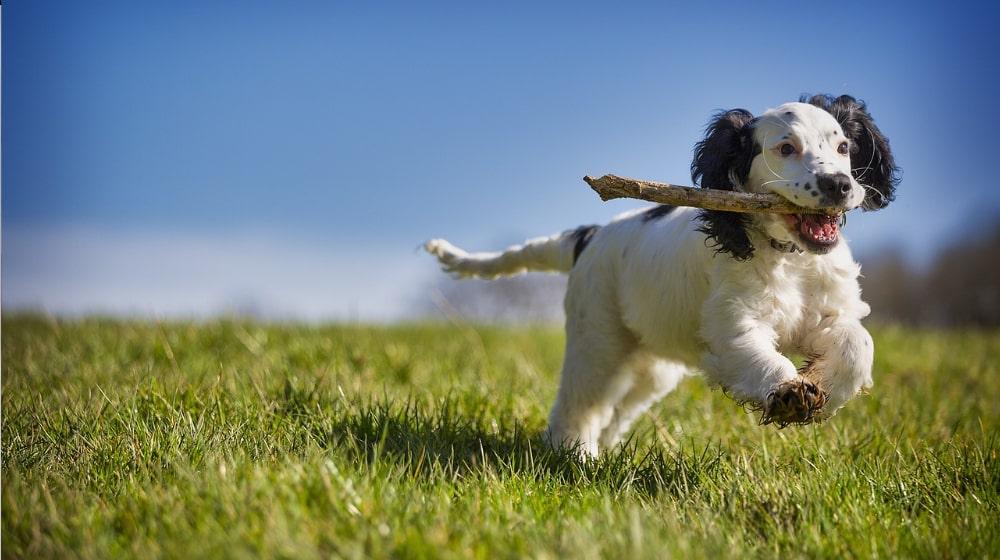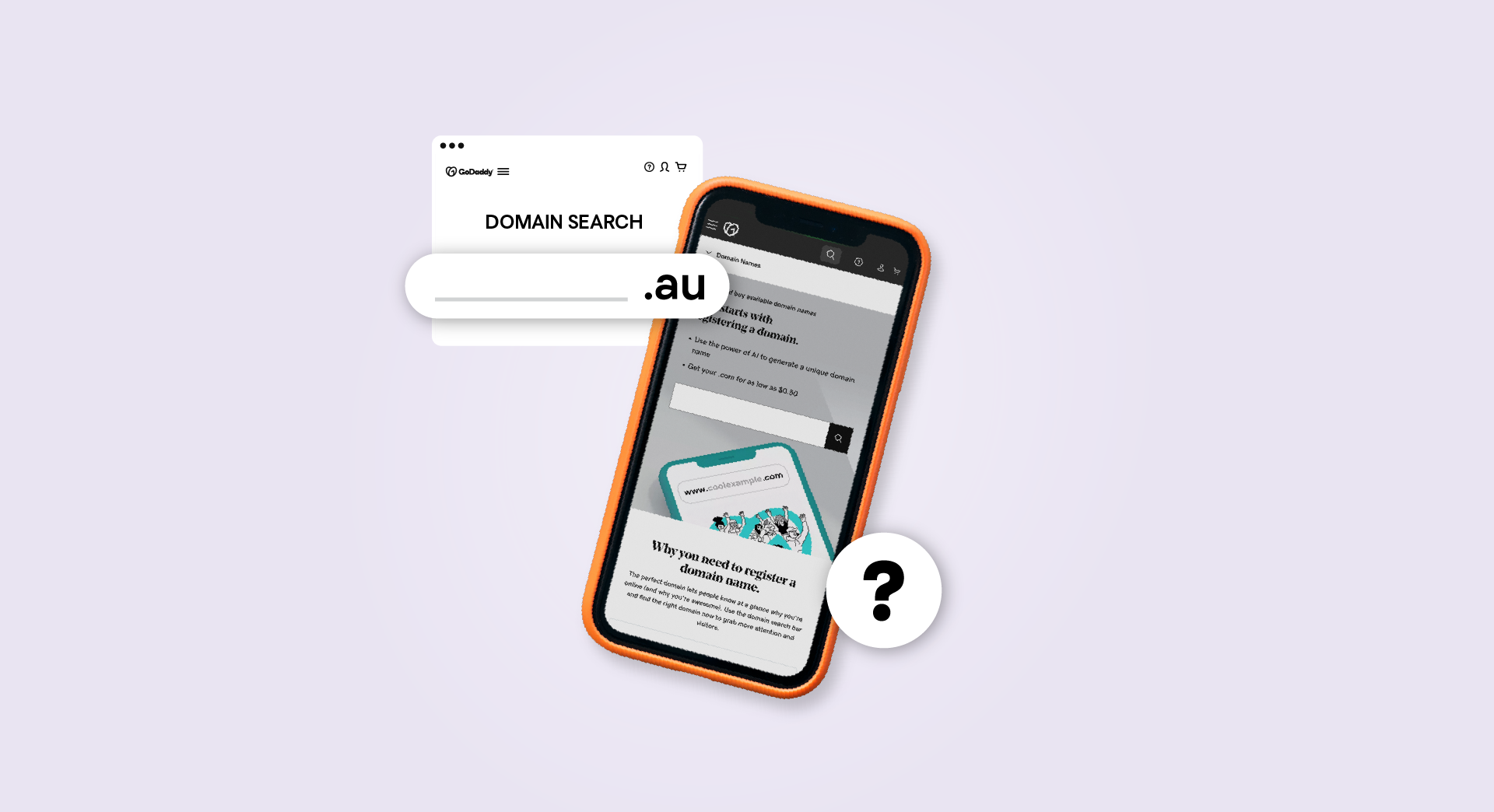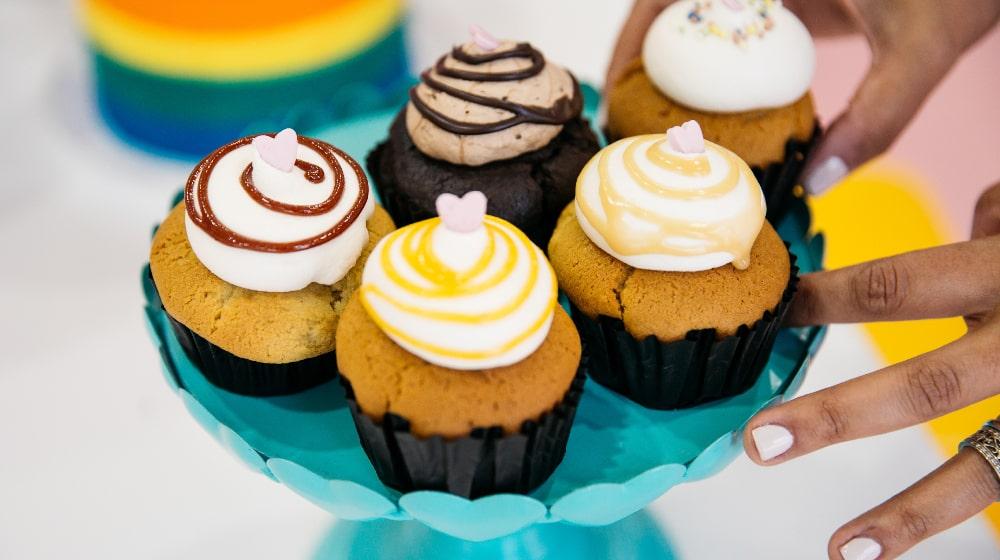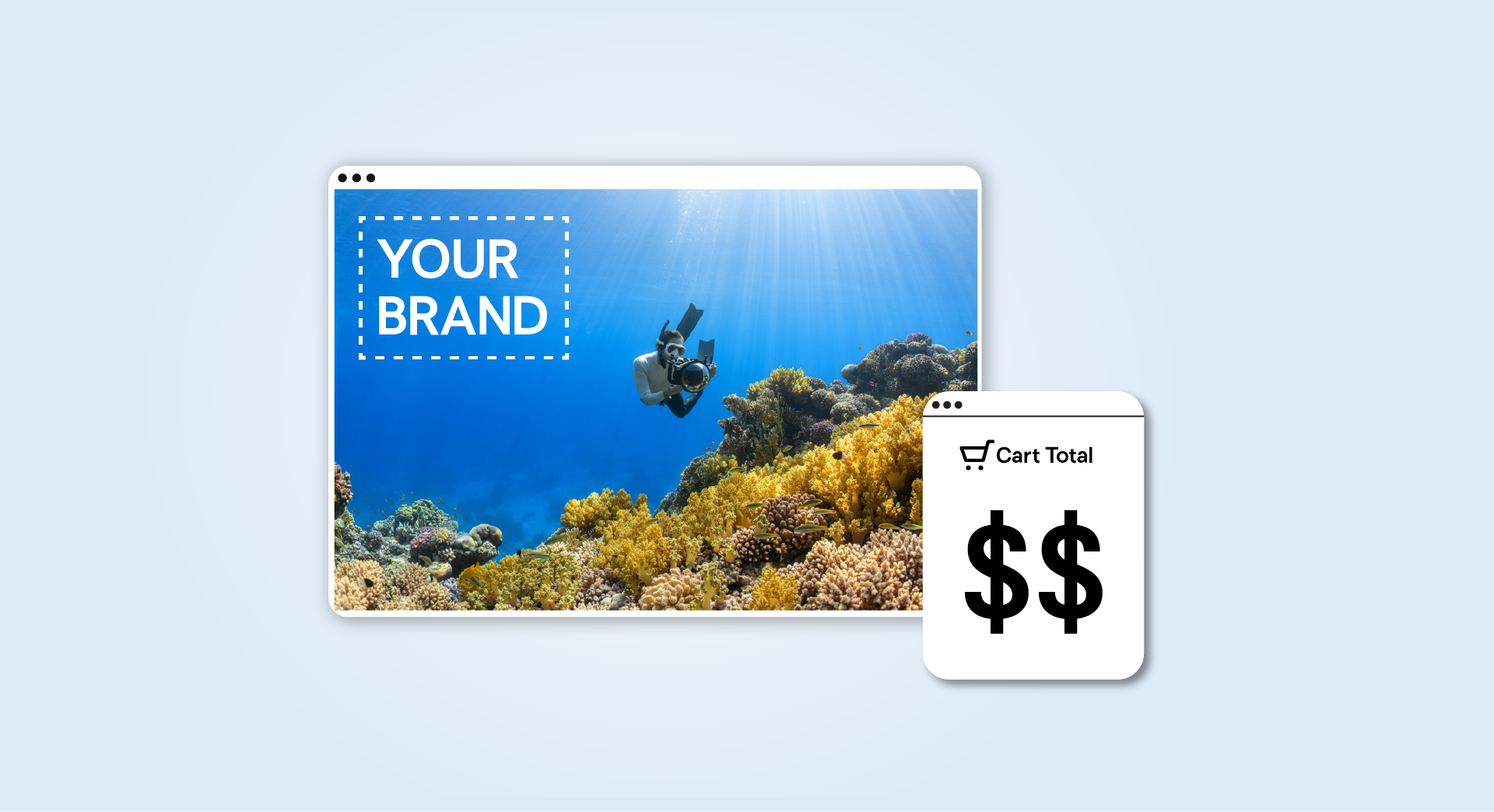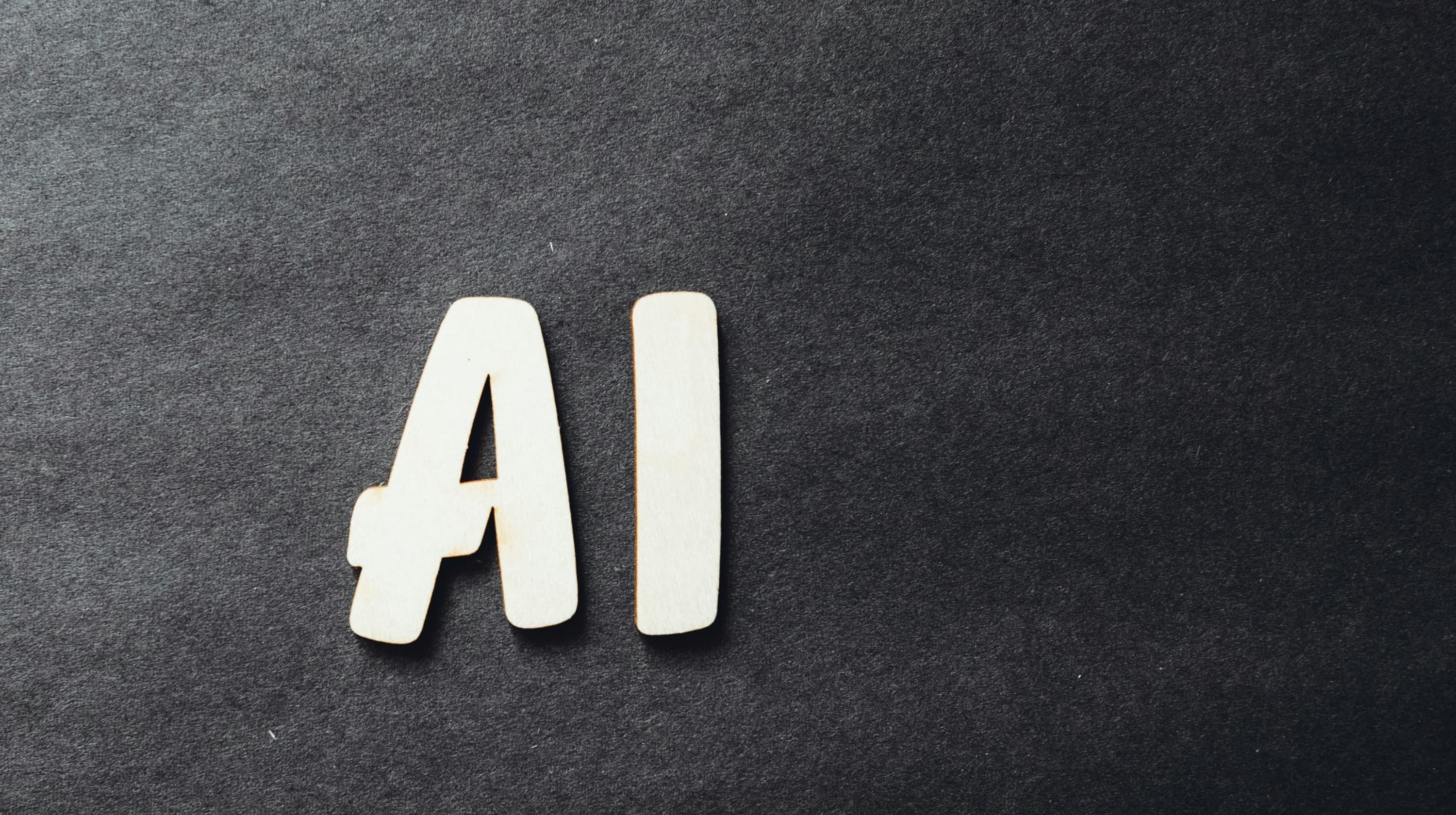As the official Website Builder Partner of the Australian Olympic team, we’re proud to support inspirational Aussie athletes chasing their dreams like snowboarding Olympian and World Champion Jarryd Hughes.
GoDaddy: Hi Jarryd! Thank so much for joining us. It looks like you have some beautiful snow-capped mountains behind you – where are you at the moment?
Jarryd Hughes: Thank you, great to be here. I’m in Austria! Not a bad view right?
GD: It’s stunning. Where are you from originally?
JH: I'm from Sydney, Australia.
How it all began
GD: How did you first get into snowboarding?
JH: I got into snowboarding through school. One of my primary school teachers thought I looked like a snowboarder.
GD: Great story! Have you sent them a thank you?!
JH: [laughs] I actually see her almost every year at Thredbo. We always catch up for a coffee. She was one of my language school teachers and she's actually from Innsbruck in Austria.
She had just done her level two coaching certificate in snowboarding, and she needed a snowboarder for our in schools’ team. And she was just like, "you look like a snowboarder – you should snowboard for the school."
GD: That's amazing. She must be so proud watching you now. You started competing professionally at just 17. Did you always know you wanted to compete at such a high level?
JH: I grew up in a very sporty family. Dad played a bit of NRL, mum loved netball, and I always loved playing sport whether it was rugby, baseball, cricket, basketball or snowboarding.
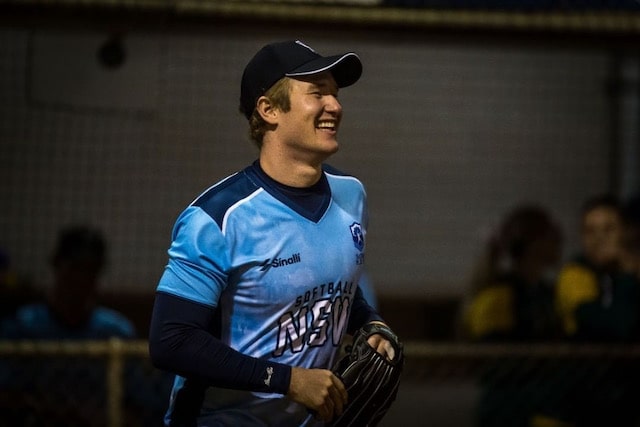
I kind of did everything growing up and I didn't really take elite sport super-seriously until I got into it. I really enjoyed doing it and I love snowboarding, and then I ended up going to World Cup for boardercross [snowboarding] and I got 11th in my first competition. I thought "this is pretty fun. Let's keep doing this."
Related: What's next for Olympic medalist & entrepreneur Melissa Wu
Managing injury
GD: And you’re clearly very good at it! But it hasn’t been an easy run the whole way. You’ve had five knee surgeries – is that right?
JH: It’s actually six now. I just had one on my ankle, which is my most recent one. All on the same leg.
GD: Wow. What was the recovery journey like for you?
JH: You know, it's always been pretty interesting coming back from surgery. It's always been more of a head-game, as physically I worked really hard to come back stronger than ever.
I've had a lot of really good people around me.
Training-wise I’ve been lucky enough to train with some elite rugby players — and that's where I did most of my rehab.
But building resilience and working on my mental state has been the biggest challenge, with six to nine months away from the snow at a time. I was fortunate – after my first knee surgery I came back to the snow, and I was the fittest and strongest I'd ever been. It was amazing. And then I came back and won a World Cup.
GD: That’s pretty impressive – and inspiring. In terms of your mental state, chat us through your recovery a little more. What was the biggest challenge to overcome for you?
JH: It was a bit of everything. Will I still be able to come back and be at the level I was, can I still get better? I don't want to just participate in things, I compete to win. And that's the only reason I go to the Olympics or any competition. I want to put my best foot forward, and if I can't, I just wouldn't go.
So getting back on snow and figuring that out has been the most difficult thing. And most recently with my ankle surgery, the first time I got to test it properly was for the pre-Olympic trials in China.
That was a bit terrifying, like all your eggs are in one basket, but I had to take the time to get my ankle ready. I couldn’t rush it. And then I ended up qualifying in the first round in the top 16 – which was amazing. Then I knew I was back. Thinking — "yep, okay, my ankle is good." Moving on to next challenge.
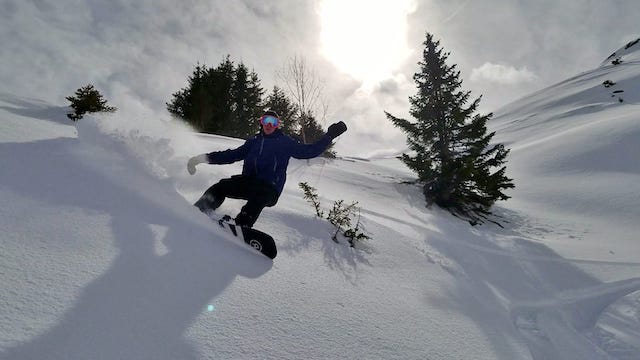
GD: How do you stay motivated and positive in those stressful situations?
JH: My friends and family are what help keep me positive. I try to surround myself with the same type of people who are very happy and always energetic and ready to do everything.
I don't have a massive group —I prefer to have a nice small, compact group of friends that really know me.
We do everything together and have a great time and that's been a massive drive for me. Knowing I have those guys to fall back on when I’m struggling with something and pushing forward. It's been amazing.
Related: Behind the scenes with Olympian Keesja Gofers
Advice on motivation
GD: That’s great to hear you’ve got such a good support network. What would you say to others that are needing a little help to stay motivated?
JH: If you're going to go in, then go all in. Don't try and tiptoe around it. If you want it, go for it.
GD: Great advice. Some would say you have to be pretty fearless to do what you do. How important is it to back yourself and trust your instincts in sport?
JH: [laughs] I think you’ve hit the nail on the head when you say you have to be fearless and trust your instincts. It's a major thing for us, especially in boardercross as we have to make split-second decisions with other people around us to race to the bottom first.
So backing myself and really living with those decisions has been massive for me.
And for an Olympic event, if you don't make the right decision in that split moment, there's four years out the door in point one of a second.
GD: What would you say is the biggest decision you've ever made trusting your instincts or backing yourself?
JH: Not training with the national Australian team, that was probably the biggest decision.
GD: Definitely a big decision. Can you talk us through that a bit more?
JH: We’re in a very unique sport where you have a team that travels around together, but it’s an individual sport, so we can all directly interfere with each other's races. It's a lot like Formula One where your teammates are actually some of your biggest competitors.
The style of training also didn’t suit my style of competing, so I really just trusted my instincts and went to the Olympic Winter Institute of Australia (OWI) and told them that this wasn't going to work the way it is. And I really went all in with it and committed, and they agreed to fund me outside the national team and train with other people.
GD: Are you happy with that decision? Would you do anything differently if you had the chance?
JH: I was really fortunate that the OWI really stuck behind me and trusted me to go after the things that I really wanted.
They knew that I really wanted to win and that's what we went after.
The rest is history. Hopefully we can do one better at this next one [Olympics].
GD: Speaking of the next one, what are your hopes for the Beijing Winter Olympics?
JH: Oh, that's an easy one — to win! I wouldn't turn up unless I thought I could clean up and I really want to win.
GD: Does anything scare you?
JH: Yes. I'm terrified of heights.
GD: How can you be scared of heights when you do what you do?!
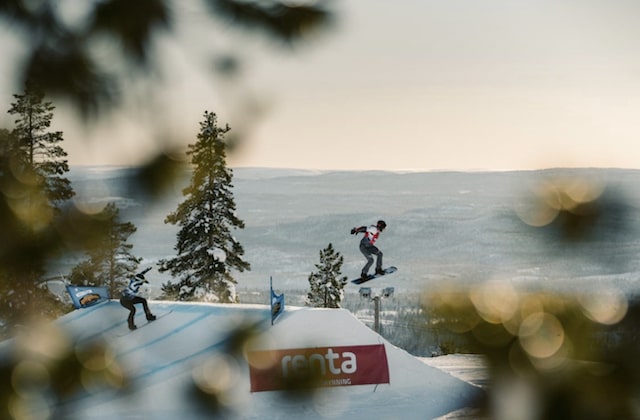
JH: I don't know, they’re just not for me [laughs]. I think I’m OK as long as I don’t look down, but as soon I look down, I get a little creeped out.
I think because I'm more comfortable and confident on my snowboard, the heights and jumps don't bother me when I'm there. It's when I'm walking around that it’s harder. Bungee jumping and skydiving are not too high on my to-do list it’s fair to say.
GD: What helps you overcome that fear, particularly in high pressure situations like when you’re competing?
JH: I meditate during the day, and I found that's been a massive help.
You'll see in some events, I'll close my eyes, count my breaths, and then I just open up and go for it.
I don’t give it a second thought and just get after it.
Related: Don't let imposter syndrome keep you from following your passion
A day in the life of Jarryd Hughes
GD: What does an average day look like for you in the lead up to the Olympics?
JH: I'm very lucky. I've got a good group of coaches and physios surrounding me at the moment. So I’ll wake up and go through my morning routine.
- Come up, have breakfast. Make a coffee.
- Go snowboarding and work on training until 1pm-ish.
- Come back, gym, then work with the physio to go through all of the problems [laughs].
- Then make something for dinner and go to bed.
GD: That's a lot of exercise! Do you take any time off?
JH: I'll usually have one ‘off’ day a week. But we’re training a lot for our competitions and so we can be 100% for the Olympics.
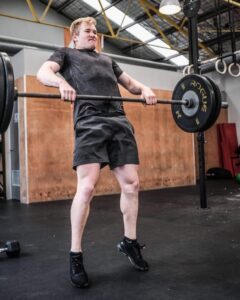
I love training. It's been a massive part of my life for eight years now.
GD: Outside of sport what takes up most your time?
JH: I study. I'm at Sydney University doing a commerce degree in finance and marketing. Taking a bit longer that most people, as I’ve got a bit of stuff to do [laughs].
GD: Have you ever thought about starting your own business?
JH: Yes.
GD: What’s holding you back?
JH: I think a lot of it is being in my head and not taking my own advice! If I want to do it, I want to give it 100%. I’m not the best at managing myself when it comes to snowboarding and having other things on my plate. I have actually made a start and have built some websites with GoDaddy.
GD: That’s great! How did you find the experience?
JH: It’s good fun. I find it quite artsy and therapeutic to build a website sometimes. It helps you refine your business idea as you build the different sections, and if you don’t like it, you just change it. Easy!
